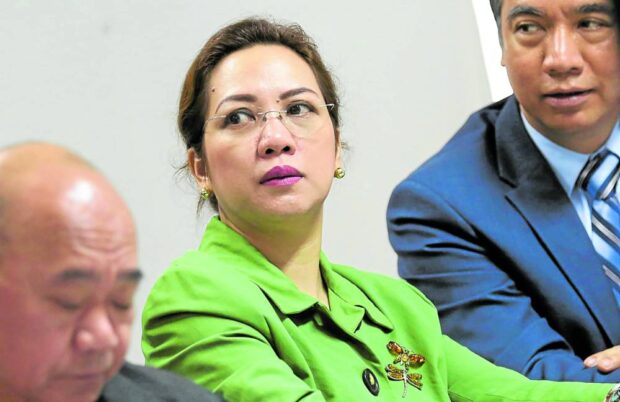
Iloilo Rep. Janette Garin FILE PHOTO
The Sandiganbayan has denied the bid of former health secretary and now Iloilo Rep. Janette Garin to junk the graft and technical malversation case against her over purchasing P3.55 billion worth of Dengvaxia vaccines in 2015.
In a nine-page resolution dated Jan. 10, the court’s Second Division dismissed Garin’s arguments in her motion to quash that the facts in the charge sheet did not constitute an offense.
She had also argued that her constitutional right to a speedy disposition of cases was “violated because of inordinate delay in the proceedings relative to the investigation and filing of the information in these cases.”
READ: Sandiganbayan nixes Garin’s bid to dismiss graft raps over Dengvaxia deal
The same arguments were cited by her coaccused in their respective motions to quash.
Garin was indicted for graft in August last year, along with former Department of Health (DOH) officials led by Undersecretaries Gerardo Bayugo and Kenneth Hartigan-Go, director Maria Joyce Ducusin, and former Philippine Children’s Medical Center executive director Julius Lecciones. Except for Bayugo, they were also charged with the illegal use of public funds or property or technical malversation under Article 220 of the Revised Penal Code.
Unlawful procurement
The case was based on the allegedly unlawful procurement of vaccines for the government’s dengue immunization program under the Benigno Aquino III administration.
In its resolution, the Sandiganbayan ruled that the information filed by the Ombudsman against the accused was sufficient and “necessarily constitute the offense charged.” It also said that the charge sheets from prosecutors all contained the elements of graft and technical malversation.
Only Garin had raised the argument that more than one offense was charged, pointing to violating the rule against duplicity of offense. But the court overruled this, which said that each information charged only one offense.
The court also junked the respondents’ claims of inordinate delay in prosecuting their cases because prosecutors had to give all the initial 42 respondents opportunities to answer the charges against them.
“[T]he Court finds that the length of time spent by both the [Department of Justice] and the Office of the Ombudsman before issuing the resolutions that culminated in the filing of the cases in court is reasonable and acceptable,” the court said.
“The Court rules that the investigations were not attended by vexatious, capricious and oppressive delays,” it added. “Rather, the length of time spent in the investigation indicates that a careful examination and review of the evidence and documents were thoroughly undertaken before the cases were filed in court.”
Associate Justice Oscar Herrera Jr., the Second Division’s chair, penned the resolution, with Associate Justices Edgardo Caldona and Arthur Malabaguio concurring.

